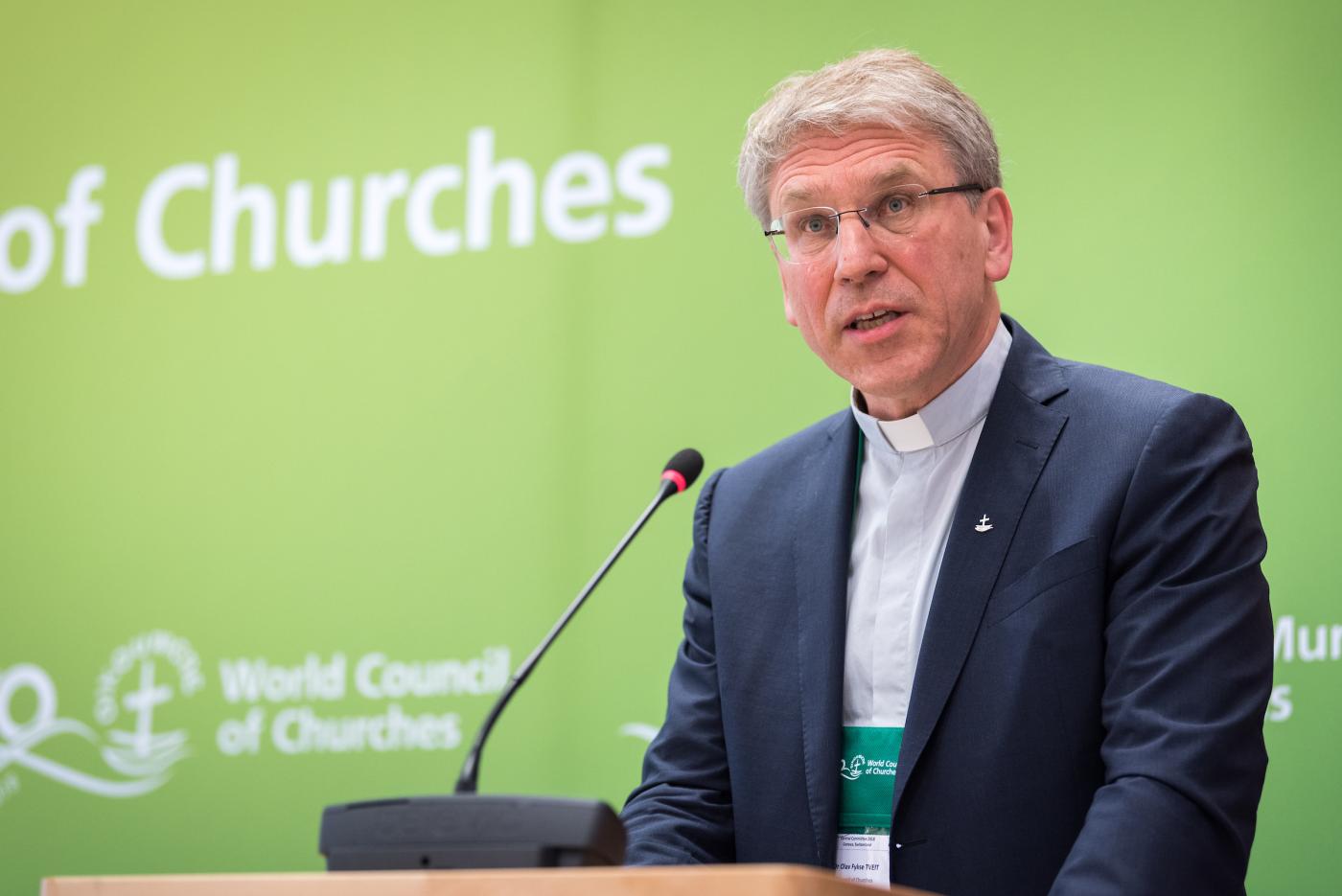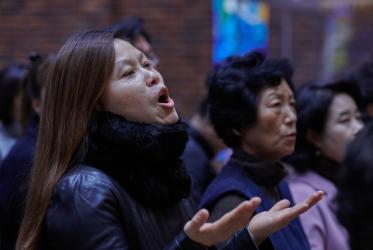In his report to the gathered members of the World Council of Churches (WCC) Central Committee, its general secretary, Rev. Dr Olav Fykse Tveit, offered both affirmation and challenge to the member churches and their representatives.
Wide-ranging and theologically rich, the report reflected on the 70-year odyssey of the WCC in pilgrimage terms as “the ecumenical movement of love.”
Citing the radically transformed relationships among churches and confessions achieved in 70 years of ecumenical interchange, Tveit pressed home the successful if imperfect fellowship that is the WCC.
“We have seen more clearly what unites us. We have costly experiences of truth and reconciliation processes to share. We have gradually become able to understand one another better and respectfully deal with our differences. Even deep divisions based on theological convictions and historical developments can be bridged. We have learned a lot about living together with our diversity. We have become mutually accountable to one another and to our common calling and mission.”
Neither an historical overview nor a list of programmatic activities, the general secretary’s report probed the theological core of the living Christian fellowship that is the WCC and drew vital connections between the historic ecumenical quest for unity and the search for justice and peace.
Along with the moderator’s address, Tveit’s report opens a weeklong meeting of the WCC’s governing body, charged with monitoring and evaluating the WCC’s programmes and progress, midway to the next assembly, choosing the theme and venue of the 11th Assembly, observing the anniversary, addressing public issues and charting the future of the organization.
Among its duties will be appointing a search committee for the next general secretary, as Tveit announced that he will not stand for a third five-year term when his second term is completed at the end of 2019. “After prayers and a long time for reflection, my conclusion is that I am not ready to say yes to a third five-year term,” he said, while affirming his “deep gratitude for the privilege of serving in this ministry.”
Tveit’s presentation also placed the Pilgrimage of Justice and Peace within that larger movement of love. “We have developed this concept of the Pilgrimage of Justice and Peace to become the overall perspective in everything we do, and we see that this motif of pilgrimage translates as openness; as willingness to be present in the lives of others as accompaniment, listening and acting in solidarity; as readiness for change and transformation of the surroundings and ourselves.”
Whether in personal, social, ecclesial, or international settings, in diakonia and peacemaking, Tveit argued, the ecumenical movement of love is more relevant than ever, especially in service to human dignity.
“There are strong powers undermining the need to see one another as participants in the one humanity, seeking our common good and our common interests,” he said. “There needs to be somebody and something that represents a counter-power of unity, justice and peace and that expresses nonpartisan, universal love.”
Affirming this “better way,” Tveit concluded, “I think it is proper to have a 70th anniversary in thanksgiving for the World Council of Churches as an instrument for the ecumenical movement of love.”
Read the general secretary’s report to the Central Committee







